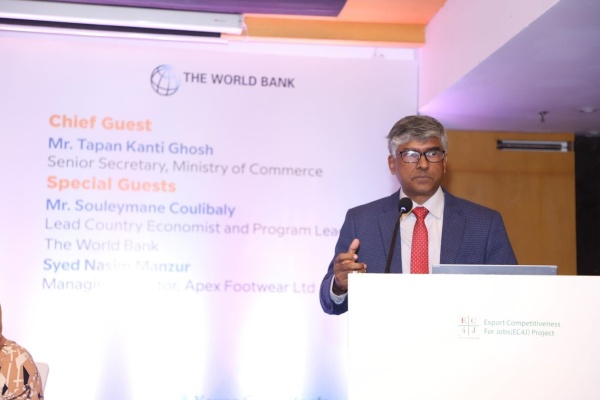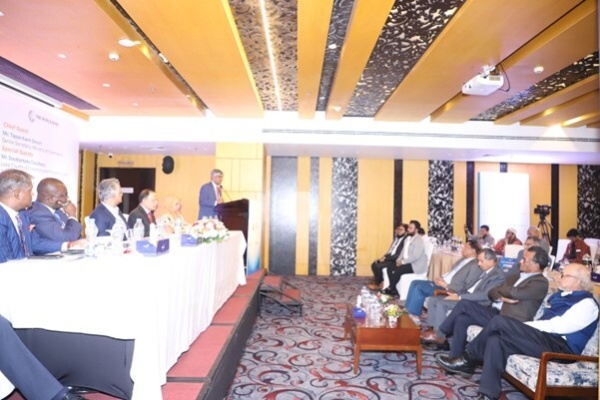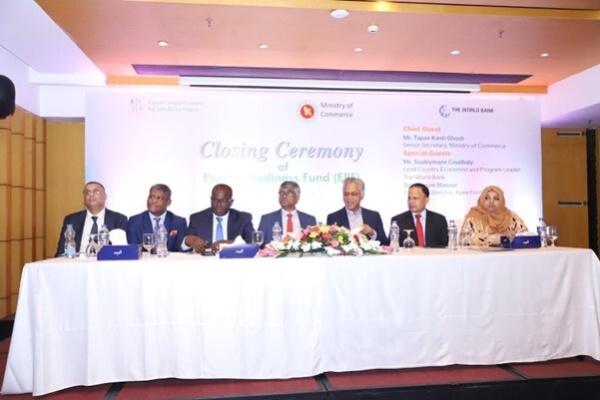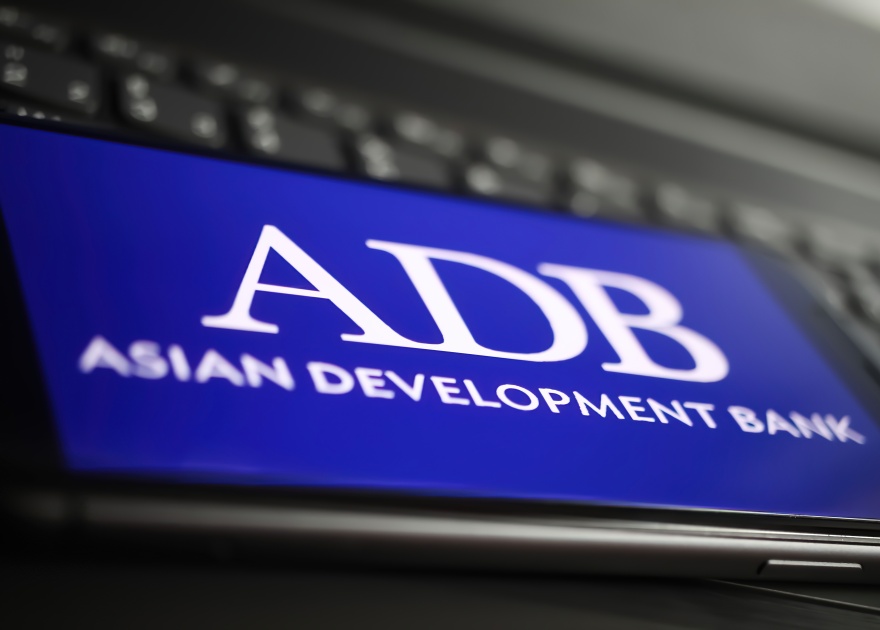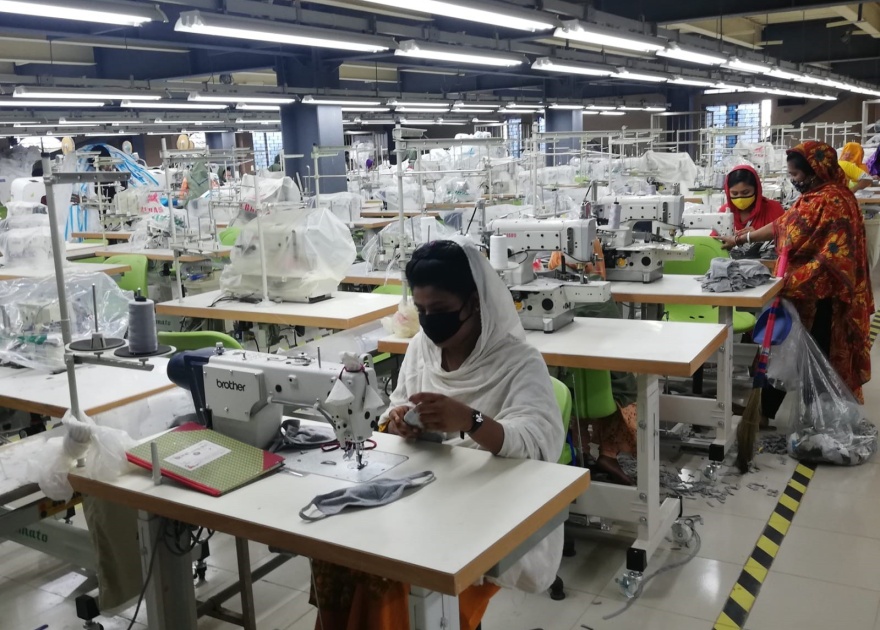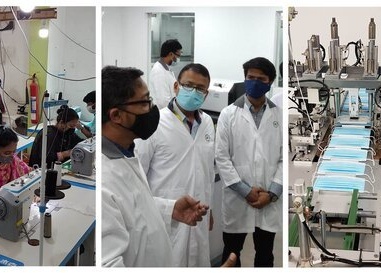Closing ceremony of the Export Readiness Fund (ERF), Bangladesh
The official closing ceremony of the Export Readiness Fund (ERF) programme was held on Monday 11 December 2023 at the Amari Dhaka Hotel in Bangladesh, bringing the programme to a close after 4 years.
Export diversification is a key priority for the Government of Bangladesh, in order to continue to deliver accelerated growth, sustainable development, and increased job creation. In line with this objective, the Ministry of Commerce, Government of the People’s Republic of Bangladesh, has been implementing the Export Competitiveness for Jobs (EC4J) Project, supported by the World Bank.
The ERF was a $17.5 million matching-grant programme and part of the Export Competitiveness for Jobs (EC4J) Project. Landell Mills, in association with Young Consultants, was the fund manager of the ERF.
Over 4 years (September 2019-November 2023), the ERF provided investment support under funding Windows 1 to 3 to eligible Bangladeshi firms in the footwear, leather goods, plastic goods, and light engineering sectors to identify gaps, catalyse investment, and improve Environmental, Social and Quality (ESQ) standards in efforts to enhance their competitiveness on the export markets. Additionally, under Window 4 (the COVID-19 Enterprise Response Fund, or CERF), the ERF supported the design, development, scale-up, and/or diversification of Bangladeshi firms that have entered the market for or are producing Medical and Personal Protective Equipment (MPPE). All 4 funding windows were established to enhance beneficiary firms’ competitiveness on the export markets, and grants were paid according to set milestones met.
A total of 570 projects were approved over the life of ERF across the 4 funding windows.
Some key achievements of the ERF – within areas such as export sales, job creation, and development of new products – are detailed below:
- 7 beneficiary firms that were not exporting prior to receiving ERF support have now started to sell their products abroad. 3 are in the plastics sector, 2 are in the footwear sector, and 2 are in the light engineering sector. The acquisition of new ESQ compliance certifications and the installation of upgraded capital machinery, both funded by ERF grant support, enabled the firms to export their products.
- New clients (export markets and buyers) were found in 22 countries across 5 continents, across 92 exporting ERF beneficiary firms. Sectors that gained new exporters include plastics, light engineering, leather and leather goods, and footwear.
- A total of 5,288 jobs were created at 106 firms from July 2021 to June 2022, a 10% increase overall. Additionally, there was a 17% increase in the number of female employees working at the beneficiary firms, exceeding the target of 5%.
- The ERF programme had an overall target to achieve 68 new ESQ accreditations. By November 2023, beneficiary firms had obtained a total of 239 certifications for ESQ compliance systems, including ISO 9001, 14001, 45001, and 13485; Supplier Ethical Data Exchange (SEDEX); Business Social Compliance Initiative (BSCI); Customs Trade Partnership Against Terrorism (C-TPAT); the CE Mark; and the HIGG Index.
- The ERF programme’s overall target was to cover 68 ESQ-related training events for beneficiary firms. By November 2023, a total of 853 ESQ-related training events on topics such as environmental risk management, waste management, quality assurance, and occupational health and safety (including fire safety) had been conducted through ERF Window 2-4 projects. A total of 10,761 workers benefitted from these trainings – 35% of which are female.
- A range of new products were developed by ERF beneficiary firms thanks to the funding they received. These include plastic bobbins for thread reeling, and different types of molds for electronics, toys, household products, and bottles. New products developed by firms who received Window 4 funding include surgical and protective masks, protective coveralls, and gowns; meltblown fabric for PPE apparel production; protective wear for various trades; and hand sanitisers and surface disinfectants for hospital and household use.
It is expected that the achievements of and lessons learned from the ERF will further guide policy makers in supporting businesses and export growth in Bangladesh through diversification, and in the design and implementation of future export development programmes.
You can read more about the achievements of the ERF programme and the ERF closing ceremony on the ERF website.
